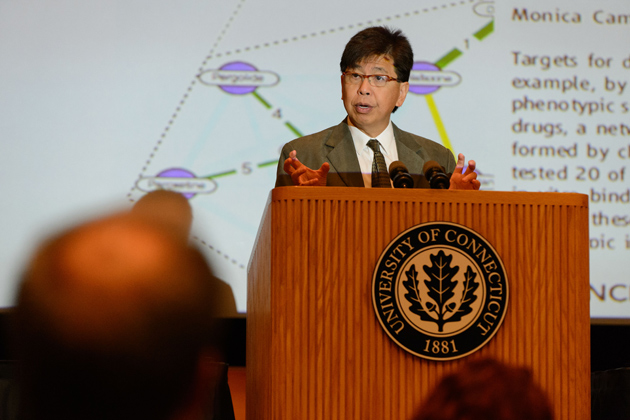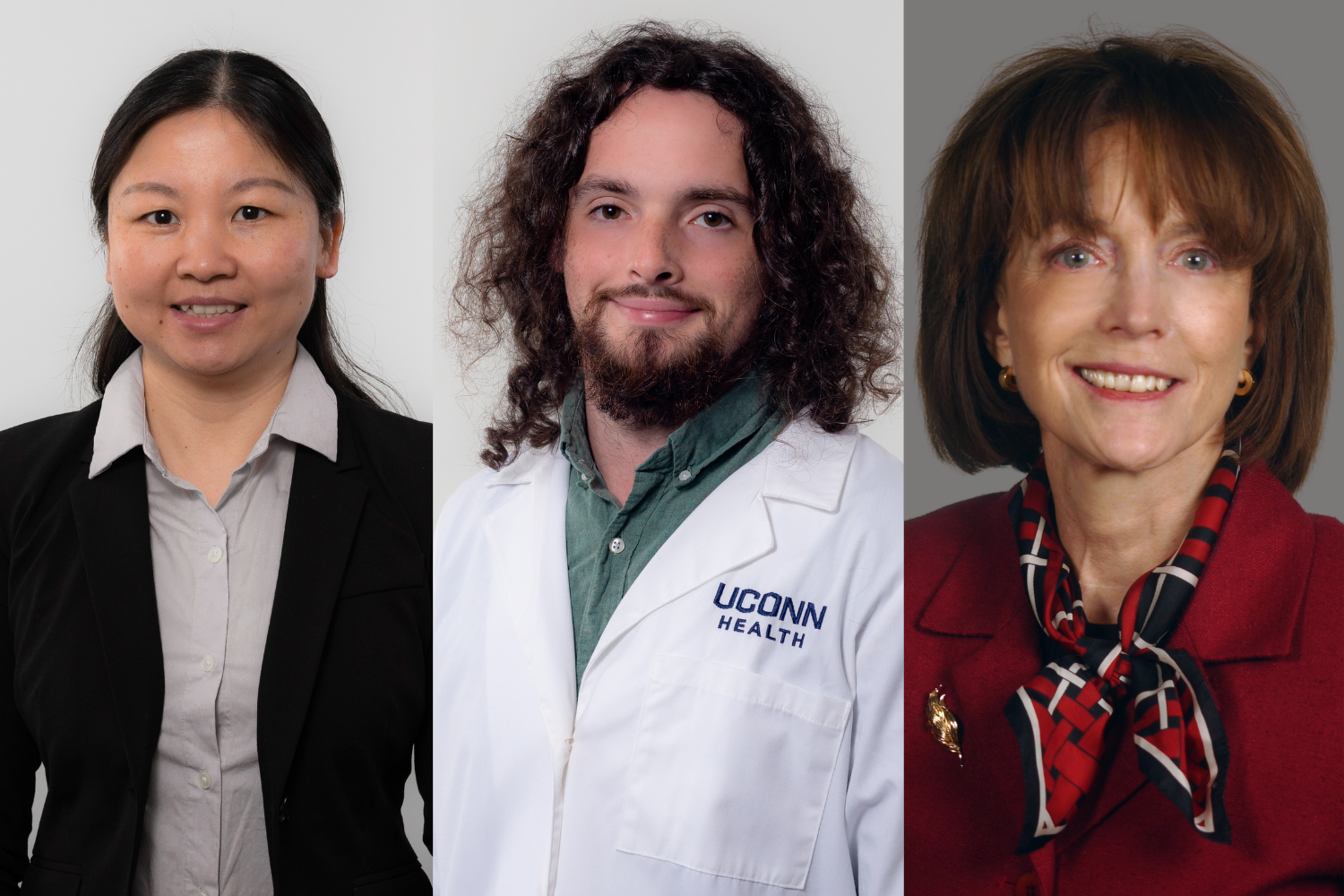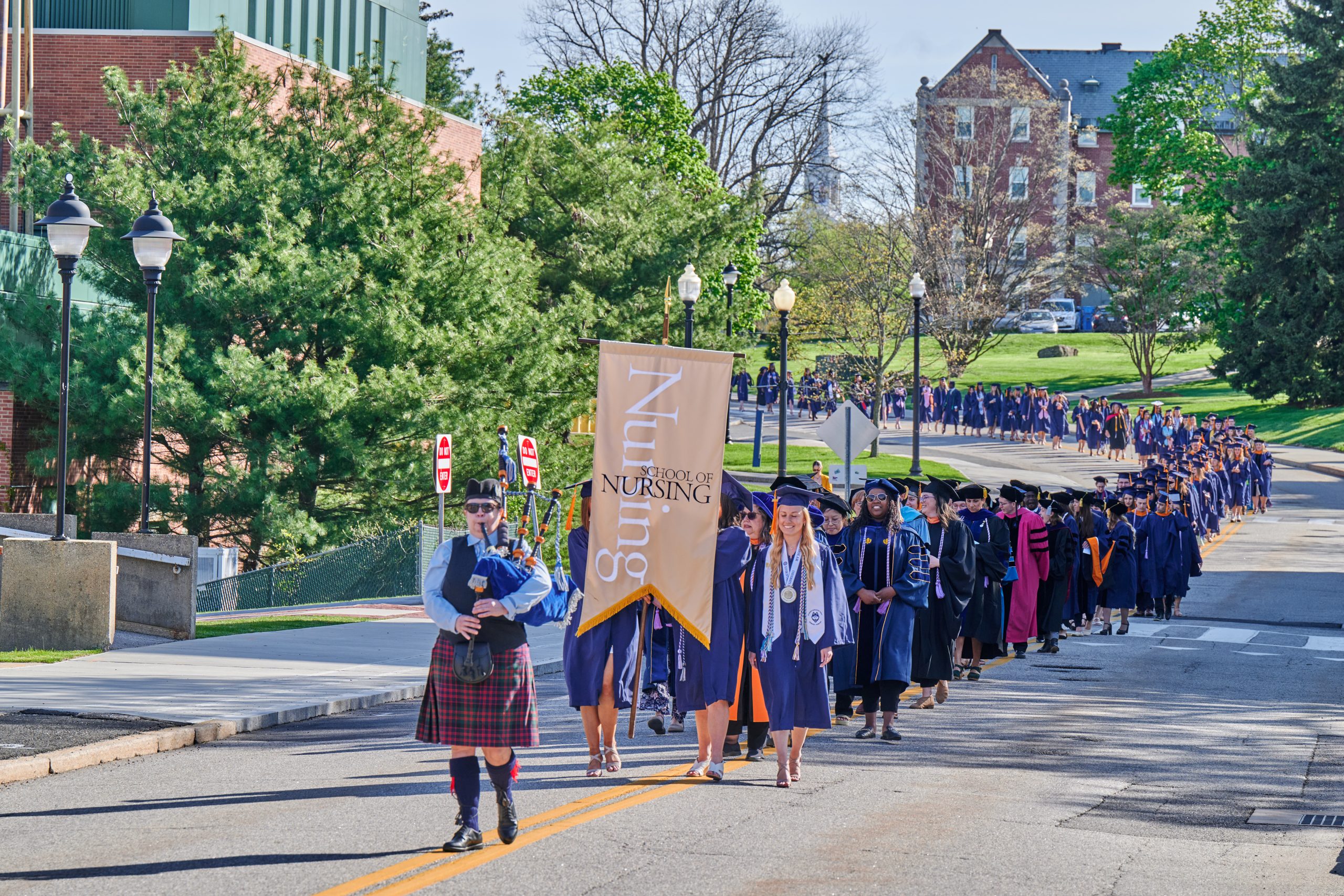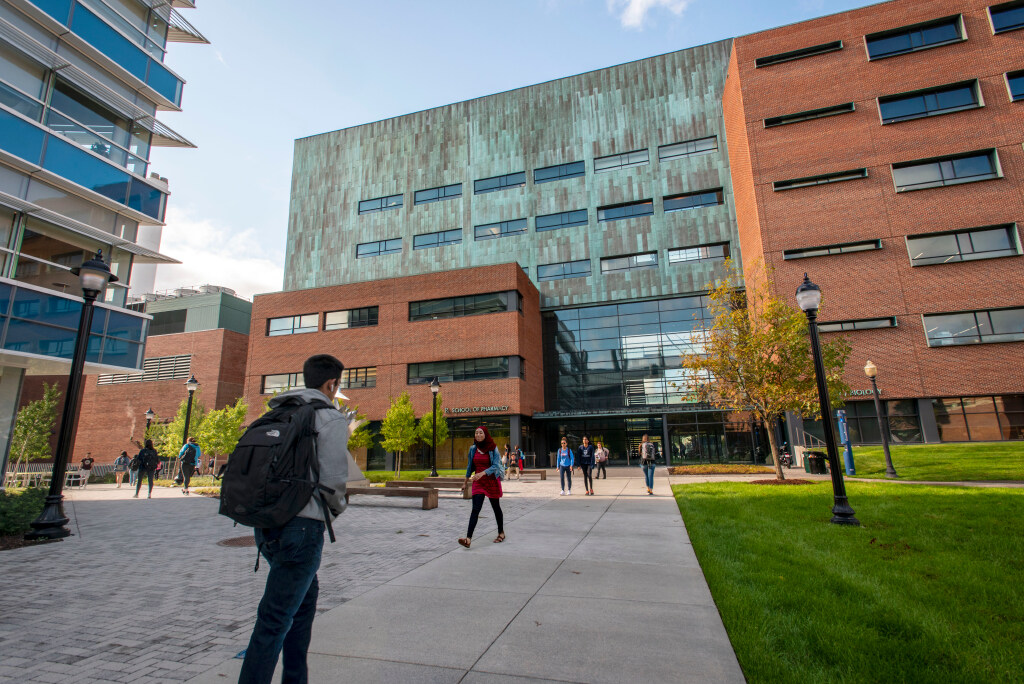
More than 300 scientists gathered in the Student Union Theater on Thursday for the first of what many hope will be an annual UConn-Jackson Laboratory Genomics Symposium.
The two-day conference brought together researchers from the UConn Storrs campus, the UConn Health Center, and Jackson Laboratory in Bar Harbor, Me. The schedule included talks on aging, cancer, personalized medicine, emerging human genomic technology, computational biology, and many other topics in genomics.
UConn President Susan Herbst opened the conference, remarking that the Jackson Lab collaboration represents “our state’s best and brightest in medical genomics.”

“This is our strength, our intellectual capital, here in this room,” she told the crowd. “We’re ultimately improving and saving lives.”
Dr. Frank M. Torti, the Health Center’s executive vice president for health affairs and dean of the UConn School of Medicine, said, “This initiative will enable Connecticut to assume a position of global leadership in developing new medical treatments tailored to each patient’s unique genetic fingerprint.”
Jackson Laboratory, whose new location at the UConn Health Center in Farmington broke ground in June, has traditionally focused on mouse genetics. But by partnering with UConn, they will expand into whole-genome research, with direct impacts for human health.

Jackson Laboratory President and CEO Edison Liu said that besides the economic and contributions the partnership will make to both states, there is a major role for education in the collaboration of a genomics institute and a university.
“We’re doing something very new here that will launch a new construct in American education and research,” he said. “We’re building one of the most innovative and forward-thinking genomics programs in the country, because we’re starting from scratch.”
The conference includes more than 40 talks and several strategy sessions, including researchers from the three locations.

Michelle Williams, associate dean for the life and behavioral sciences in the College of Liberal Arts and Sciences and a member of the planning committee, said that the conference will help the Jackson Lab and UConn researchers to get to know each other’s strengths and how they can work together.
“Our faculty do a lot of interdisciplinary research – it’s our hallmark,” Williams said. “The conference will help the UConn-Jackson Lab collaboration move forward with a clear agenda. We’re asking: what strengths do we have, and how can we expand them?”
Dipak Dey, associate dean for the physical sciences, commented on the potential for developing new educational enterprises.
“Most people at national labs don’t get to teach, and most college students aren’t taught by people who work at national labs,” Dey said. “We’ll be identified as one of the few universities that has a genomics institute.”
Jackson Laboratory researchers will be able to seek joint appointments with UConn to get involved in education, a prospect that Liu said he will make a priority in the early stages of the project.

Working together, UConn faculty and Jackson Lab researchers will likely develop varied and progressive courses aimed at learning genetics for undergraduates and graduate students, Dey said.
“To do and teach next-generation genomics, you really need to be interdisciplinary,” he said. “You need scientists, engineers, clinicians, theorists, ethicists, computational researchers, and so many more.”
Added Williams, “Although research is our main emphasis, we’re also training the next generation of genomic scientists.”
To learn more about the Jackson Laboratory for Genomic Medicine, click here.









